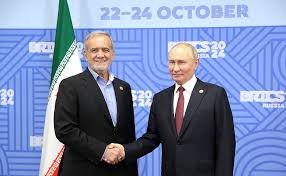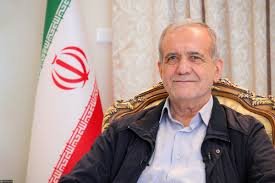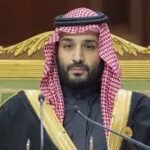Masoud Pezeshkian From War Medic to Political Reformer
Born on September 29, 1954, in Mahabad, Iran, Masoud Pezeshkian grew up in a Kurdish family that valued education and public service. His early years were shaped by the tumultuous Iranian Revolution and the devastating Iran-Iraq War (1980-1988), where he served as a frontline medic—an experience that deeply influenced his commitment to healthcare reform. Few know that during the war, Pezeshkian performed emergency surgeries in makeshift field hospitals, often without proper medical supplies, saving countless soldiers under artillery fire. This period forged his reputation as a pragmatic problem-solver, willing to work within broken systems to save lives.
After the war, he pursued specialized cardiac training at Tabriz University of Medical Sciences, becoming one of Iran’s most respected heart surgeons. His transition into politics was accidental: in 2000, he was drafted as Health Minister due to his administrative reforms at Tabriz Medical Center, where he had reduced surgical mortality rates by 40%.
Political Ascent: A Moderate in a Hardline System of Masoud Pezeshkian
Pezeshkian’s political career has been defined by balancing reformist ideals with survival in Iran’s conservative-dominated system. As Health Minister (2001-2005), he quietly expanded rural healthcare access while avoiding direct confrontation with Supreme Leader Khamenei—a tactic that allowed him to implement polio eradication programs and HIV/AIDS treatment initiatives.
A little-known story involves his 2003 defiance of conservative clerics who opposed importing Western vaccines. Pezeshkian secured Khamenei’s personal approval by framing the decision as a “national security priority,” showcasing his ability to navigate Iran’s complex power structures. His later role as First Deputy Speaker of Parliament (2016-2020) saw him broker compromises on controversial bills, earning respect across ideological lines.
The 2024 Presidential Campaign: An Unexpected Victory
Pezeshkian’s presidential run initially seemed doomed—he was the only reformist allowed to run after Iran’s Guardian Council disqualified all other moderate candidates. His campaign leveraged his medical hero status, with viral videos recounting how he once operated on a child during the 2017 Kermanshah earthquake while aftershocks rattled the hospital.
Behind the scenes, he secured tacit approval from key Revolutionary Guard commanders by pledging to maintain Iran’s defense programs—a necessary concession in Iran’s militarized politics. His landslide second-round victory (53.7%) reflected public exhaustion with hardline failures on the economy and international isolation.
Domestic Policy: Healthcare Overhaul and Women’s Rights of Masoud Pezeshkian
Pezeshkian’s signature issue remains healthcare reform. As president, he’s pushing to triple medical residency slots and establish emergency clinics along Iran’s restive borders—drawing on his war experience. His most controversial move has been quietly reinstating gynecologists who were purged under previous administrations for providing birth control, a nod to women’s rights amid mandatory hijab enforcement.
A revealing anecdote: When confronted by hardliners about “Westernized medicine,” Pezeshkian reportedly quoted an Islamic hadith about the Prophet Muhammad seeking treatment from a Jewish doctor—disarming critics with religious arguments.

Foreign Policy: Balancing Détente and Resistance
Unlike his predecessor, Pezeshkian has cautiously embraced diplomacy, restarting nuclear talks and reopening trade channels with Europe. However, leaked cables show he reassured Russian officials that Iran’s drone shipments to Moscow would continue, demonstrating his tightrope walk between reform and revolutionary dogma.
His most significant achievement may be securing a prisoner swap with the U.S. in late 2024, which included the release of Iranian-American businessman Reza Sarhangpour—a deal negotiated through Omani backchannels that Pezeshkian personally oversaw.
Economic Crisis: The Surgeon’s Prescription
Facing 50% inflation and crippling sanctions, Pezeshkian’s economic team has pursued unorthodox solutions. These include “medical diplomacy”—allowing foreign pharmaceutical firms to pay Iran in euros for rare isotopes used in cancer treatment, bypassing dollar sanctions. He’s also revived a stalled deal with China to digitize Iran’s banking system, reducing reliance on SWIFT.
A little-publicized fact: His administration secretly negotiated with cryptocurrency miners to use Iran’s subsidized energy for blockchain transactions, generating billions in untraceable revenue.
Challenges: Hardline Resistance and Health Scares
Pezeshkian’s reforms face fierce opposition. In January 2025, parliament rejected his cabinet picks, forcing him to accept conservative compromises. More alarmingly, he underwent emergency heart surgery in March 2025—ironically performed by his former student—sparking succession rumors.
Yet he’s proven resilient, recently outmaneuvering hardliners by rallying public support through televised “Ask the President” medical consultations, where he diagnoses callers’ health issues live on air.
Masoud Pezeshkian is Legacy: A Bridge to Iran’s Future?
Whether Pezeshkian can truly reform Iran remains uncertain. But his unique blend of medical credibility, wartime patriotism, and quiet diplomacy offers a glimmer of hope for a nation weary of extremism. As he often tells aides: “You don’t refuse to operate just because the patient smokes.”
Go to main page


